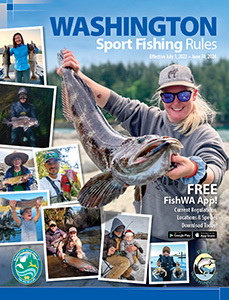Message from WDFW

The year 2024 marks the 50th anniversary of the pivotal court case U.S. v. Washington, better known as the Boldt Decision. The case affirmed the rights of certain Native American tribes to fish at “usual and accustomed grounds and stations” in Washington, and introduced the cooperative management relationship for sharing the fishery resources between the state and treaty tribes that continues today.
The years leading up to and following the Boldt Decision were contentious and often confrontational. But a half-century on, the fishery co-management relationship is as strong as it’s ever been, with a new generation of state and tribal leaders working together with mutual respect and the acknowledgement that cooperation is necessary to recover declining salmon populations.
We continue to work with tribes to restore estuaries across the state and reclaim salmon habitat lost amid Washington’s rapid growth, while crafting a framework for long-term management of threatened salmon stocks. The goal of all this cooperation is to restore salmon populations and the associated benefits they bring to the ecosystem. And, by having them back in Washington waters, we can provide more fishing opportunities. Fishery managers spend countless hours representing the diverse interests of anglers across the state, but that’s a challenge when salmon aren’t coming back in the numbers any of us would like to see and the challenges to salmon recovery continue to mount.
But salmon aren’t the only fish we manage in Washington. We work hard here at WDFW to offer diverse fishing and shellfishing opportunities, and you can find that array of opportunities inside this pamphlet, everything from trout and perch in lakes across the state to crab, squid, and halibut in Washington’s marine waters.
Long story short, Washington offers something for everyone, whether a long-time angler getting their limit on the salt or a first-timer reeling in a trout stocked at their local lake. At the core of that opportunity is the reality that Washington’s fish belong to all of us, a shared resource that benefits our bodies, our minds, and our identities as residents of the Pacific Northwest.

